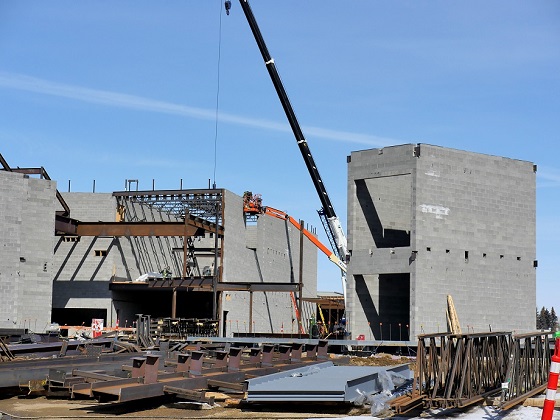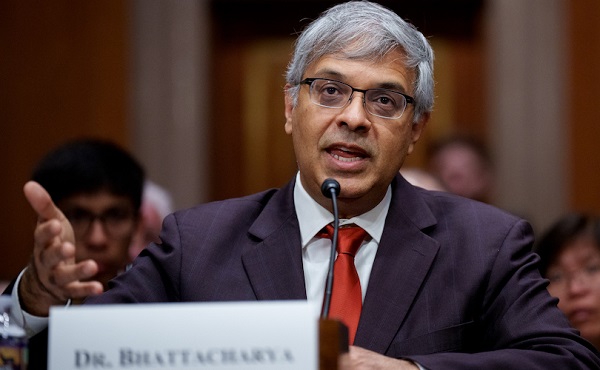Alberta
$8.6 billion committed: Province to fund up to 30 new schools and 8 modernizations in each of next 3 years

Alberta’s government is committing $8.6 billion to complete and open 200,000 new student spaces across the province in the next seven years.
Alberta’s population is growing exponentially as more people from across Canada and around the world choose to make the province their home. This rapid growth is causing strain on the Kindergarten to Grade 12 education system, with student enrolment increasing at historic rates.
To keep up with fast-rising student enrolment, Alberta’s government is committing $8.6 billion through the new School Construction Accelerator Program. This program will create more than 200,000 new and modernized spaces for students to learn, grow and reach their full potential. Starting in Budget 2025, Alberta’s government will kick-start up to 30 new schools and as many as eight modernizations and replacement schools every year for the next three years.
“Every student deserves a quality education in a school that can meet their learning needs and set them on a path to success in the future. As hundreds of thousands of people are choosing to make Alberta their home, we are responding by funding and building the schools our fast-growing communities need. As we build, we’re asking school boards and municipalities to work with us so we can get shovels in the ground as quickly as possible.”
The Calgary Metropolitan Area and Edmonton Metropolitan Region, along with other communities across the province, have been feeling the pressures of strong student growth and aging school infrastructure. The School Construction Accelerator Program will result in 50,000 new or modernized student spaces over the next three years – and more than 150,000 new and modernized spaces over the following four years. In total, the School Construction Accelerator Program will mean approval for up to 30 new school projects and as many as eight new modernization and replacement projects every year over the next three years. In addition to the school projects, 20,000 new student spaces will be delivered through modular classrooms over the next four years.
“We are investing in the future of our province. Through our commitment to kick-start 30 new schools each year over the next three years, we are delivering new student spaces across the province and in our fastest-growing communities for students to learn, grow and reach their full potential.”
“I look forward to working with my ministry and industry partners to build the schools Albertans need and ensuring that each project is as unique as the students who use them. School builds, modernizations and renovations support tens of thousands of jobs across the province. As Alberta communities continue to grow, this announcement will allow us to meet demands for spaces faster and more efficiently, all while creating jobs and boosting our local and provincial economies.”
The School Construction Accelerator program also takes immediate action to speed up the construction of schools by enabling school projects to be approved in-year for their next stage in the construction process without having to wait for the next budget cycle. This means all previously approved school projects currently in the planning and design stages can move forward to the next stage as soon as they are ready to do so. Through this change, 10 previously announced priority school projects are now approved for the next stage of project delivery, including six moving to full construction.
“We appreciate the government’s recognition that there is an urgent need to provide additional learning spaces for CBE students. CBE families are looking forward to new schools in their growing communities and modernizations to address aging infrastructure. Thank you to the Premier and the Government of Alberta for this much-needed investment.”
“Edmonton Public Schools is grateful for the province’s funding for school infrastructure. This crucial support will help us meet urgent needs and positively affect our students and families.”
The population growth has not only increased pressure in the public and separate school system but has increased demand for publicly funded charter programming and space needs. Public charter schools play an important role in Alberta’s education system by offering unique programming to students focused on a learning style, teaching style, approach or pedagogy not already being offered by school boards where the charter is located. As part of this accelerated program, Alberta’s government will add 12,500 new charter school student spaces over the next four years through a Charter School Accelerator pilot program.
“The Association of Alberta Public Charter Schools is elated by this historic capital announcement. It will help ensure that more families and students can access the excellent programming our public charter schools offer for generations to come.”
Independent schools offer specialized learning supports as well as religious and cultural programming to support parental and educational choice. Alberta’s government will continue to explore opportunities for a school capital pilot program for non-profit independent schools to broaden learning options for Alberta families.
Quick facts
- The School Construction Accelerator Program will deliver more than 200,000 new and modernized student spaces.
- Previously approved school projects and modular classrooms will create about 50,000 new and modernized student spaces over the next three years.
- The program will create about 150,000 additional new and modernized student spaces. This includes:
- more than 100,000 new student spaces
- more than 16,600 modernized student spaces
- more than 20,000 student spaces in new or relocated modular classrooms
2025 Federal Election
Next federal government should recognize Alberta’s important role in the federation

From the Fraser Institute
By Tegan Hill
With the tariff war continuing and the federal election underway, Canadians should understand what the last federal government seemingly did not—a strong Alberta makes for a stronger Canada.
And yet, current federal policies disproportionately and negatively impact the province. The list includes Bill C-69 (which imposes complex, uncertain and onerous review requirements on major energy projects), Bill C-48 (which bans large oil tankers off British Columbia’s northern coast and limits access to Asian markets), an arbitrary cap on oil and gas emissions, numerous other “net-zero” targets, and so on.
Meanwhile, Albertans contribute significantly more to federal revenues and national programs than they receive back in spending on transfers and programs including the Canada Pension Plan (CPP) because Alberta has relatively high rates of employment, higher average incomes and a younger population.
For instance, since 1976 Alberta’s employment rate (the number of employed people as a share of the population 15 years of age and over) has averaged 67.4 per cent compared to 59.7 per cent in the rest of Canada, and annual market income (including employment and investment income) has exceeded that in the other provinces by $10,918 (on average).
As a result, Alberta’s total net contribution to federal finances (total federal taxes and payments paid by Albertans minus federal money spent or transferred to Albertans) was $244.6 billion from 2007 to 2022—more than five times as much as the net contribution from British Columbians or Ontarians. That’s a massive outsized contribution given Alberta’s population, which is smaller than B.C. and much smaller than Ontario.
Albertans’ net contribution to the CPP is particularly significant. From 1981 to 2022, Alberta workers contributed 14.4 per cent (on average) of total CPP payments paid to retirees in Canada while retirees in the province received only 10.0 per cent of the payments. Albertans made a cumulative net contribution to the CPP (the difference between total CPP contributions made by Albertans and CPP benefits paid to retirees in Alberta) of $53.6 billion over the period—approximately six times greater than the net contribution of B.C., the only other net contributing province to the CPP. Indeed, only two of the nine provinces that participate in the CPP contribute more in payroll taxes to the program than their residents receive back in benefits.
So what would happen if Alberta withdrew from the CPP?
For starters, the basic CPP contribution rate of 9.9 per cent (typically deducted from our paycheques) for Canadians outside Alberta (excluding Quebec) would have to increase for the program to remain sustainable. For a new standalone plan in Alberta, the rate would likely be lower, with estimates ranging from 5.85 per cent to 8.2 per cent. In other words, based on these estimates, if Alberta withdrew from the CPP, Alberta workers could receive the same retirement benefits but at a lower cost (i.e. lower payroll tax) than other Canadians while the payroll tax would have to increase for the rest of the country while the benefits remained the same.
Finally, despite any claims to the contrary, according to Statistics Canada, Alberta’s demographic advantage, which fuels its outsized contribution to the CPP, will only widen in the years ahead. Alberta will likely maintain relatively high employment rates and continue to welcome workers from across Canada and around the world. And considering Alberta recorded the highest average inflation-adjusted economic growth in Canada since 1981, with Albertans’ inflation-adjusted market income exceeding the average of the other provinces every year since 1971, Albertans will likely continue to pay an outsized portion for the CPP. Of course, the idea for Alberta to withdraw from the CPP and create its own provincial plan isn’t new. In 2001, several notable public figures, including Stephen Harper, wrote the famous Alberta “firewall” letter suggesting the province should take control of its future after being marginalized by the federal government.
The next federal government—whoever that may be—should understand Alberta’s crucial role in the federation. For a stronger Canada, especially during uncertain times, Ottawa should support a strong Alberta including its energy industry.
Alberta
Province announces plans for nine new ‘urgent care centres’ – redirecting 200,000 hospital visits

Expanding urgent care across Alberta
If passed, Budget 2025 includes $17 million in planning funds to support the development of urgent care facilities across the province.
As Alberta’s population grows, so does the demand for health care. In response, the government is making significant investments to ensure every Albertan has access to high-quality care close to home. Currently, more than 35 per cent of emergency department visits are for non-life-threatening conditions that could be treated at urgent care centres. By expanding these centres, Alberta’s government is enhancing the health care system and improving access to timely care.
If passed, Budget 2025 includes $15 million to support plans for eight new urgent care centres and an additional $2 million in planning funds for an integrated primary and urgent care facility in Airdrie. These investments will help redirect up to 200,000 lower-acuity emergency department visits annually, freeing up capacity for life-threatening cases, reducing wait times and improving access to care for Albertans.
“More people are choosing to call Alberta home, which is why we are taking action to build capacity across the health care system. Urgent care centres help bridge the gap between primary care and emergency departments, providing timely care for non-life-threatening conditions.”
“Our team at Infrastructure is fully committed to leading the important task of planning these eight new urgent care facilities across the province. Investments into facilities like these help strengthen our communities by alleviating strains on emergency departments and enhance access to care. I am looking forward to the important work ahead.”
The locations for the eight new urgent care centres were selected based on current and projected increases in demand for lower-acuity care at emergency departments. The new facilities will be in west Edmonton, south Edmonton, Westview (Stony Plain/Spruce Grove), east Calgary, Lethbridge, Medicine Hat, Cold Lake and Fort McMurray.
“Too many Albertans, especially those living in rural communities, are travelling significant distances to receive care. Advancing plans for new urgent care centres will build capacity across the health care system.”
“Additional urgent care centres across Alberta will give Albertans more options for accessing the right level of care when it’s needed. This is a necessary and substantial investment that will eventually ease some of the pressures on our emergency departments.”
The remaining $2 million will support planning for One Health Airdrie’s integrated primary and urgent care facility. The operating model, approved last fall, will see One Health Airdrie as the primary care operator, while urgent care services will be publicly funded and operated by a provider selected through a competitive process.
“Our new Airdrie facility, offering integrated primary and urgent care, will provide same-day access to approximately 30,000 primary care patients and increase urgent care capacity by around 200 per cent, benefiting the entire community and surrounding areas. We are very excited.”
Alberta’s government will continue to make smart, strategic investments in health facilities to support the delivery of publicly funded health programs and services to ensure Albertans have access to the care they need, when and where they need it.
Budget 2025 is meeting the challenge faced by Alberta with continued investments in education and health, lower taxes for families and a focus on the economy.
Quick facts
- The $2 million in planning funds for One Health Airdrie are part of a total $24-million investment to advance planning on several health capital initiatives across the province through Budget 2025.
- Alberta’s population is growing, and visits to emergency departments are projected to increase by 27 per cent by 2038.
- Last year, Alberta’s government provided $8.4 million for renovations to the existing Airdrie Community Health Centre.
Related information
-

 Alberta2 days ago
Alberta2 days agoAlberta Institute urging Premier Smith to follow Saskatchewan and drop Industrial Carbon Tax
-

 Addictions2 days ago
Addictions2 days agoShould fentanyl dealers face manslaughter charges for fatal overdoses?
-

 Alberta2 days ago
Alberta2 days agoAlbertans have contributed $53.6 billion to the retirement of Canadians in other provinces
-

 Also Interesting1 day ago
Also Interesting1 day agoThe bizarre story of Taro Tsujimoto
-

 2025 Federal Election2 days ago
2025 Federal Election2 days agoChinese Gangs Dominate Canada: Why Will Voters Give Liberals Another Term?
-

 Energy2 days ago
Energy2 days agoEnergy, climate, and economics — A smarter path for Canada
-

 J.D. Tuccille1 day ago
J.D. Tuccille1 day agoSignal Chat Controversy Is an Endorsement of Encryption Software
-

 Health2 days ago
Health2 days agoHow the once-blacklisted Dr. Jay Bhattacharya could help save healthcare




